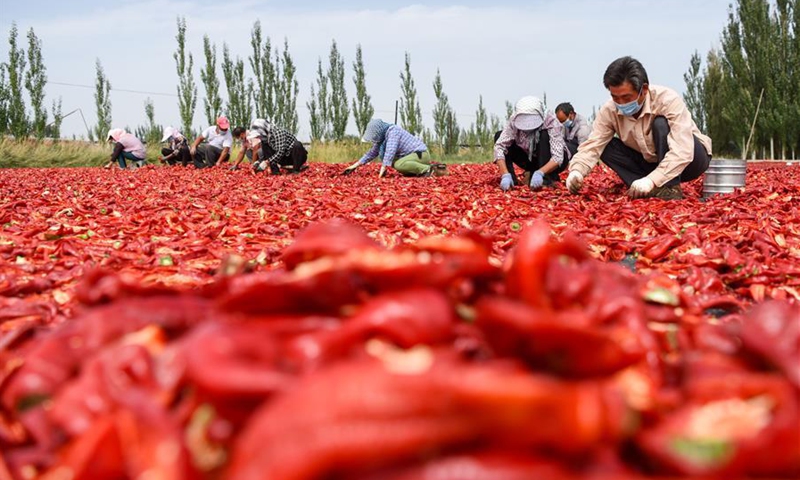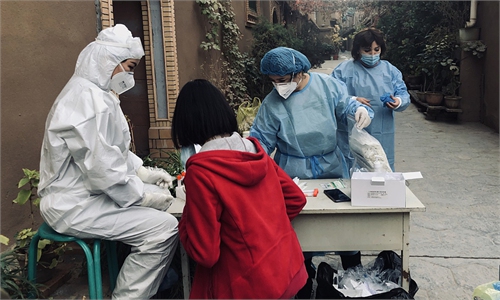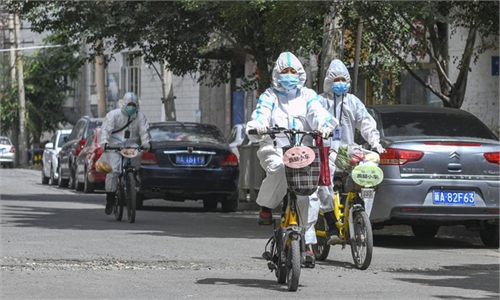
Farmers dry chilis in Dongdahan Village, Bohu County of northwest China's Xinjiang Uygur Autonomous Region, Sept. 1, 2020. In summer and autumn, the vast land in Xinjiang embraces the harvest season. (Xinhua/Ding Lei)
The factory that's been closely linked to COVID-19 infections in Shufu county of Kashi in Northwest China's Xinjiang Uygur Autonomous Region is a clothing factory, and its establishment has helped solve employment difficulties for residents, officials said on Wednesday, refuting Western media slander that it is a "forced labor camp."
Xinjiang officials said at a press conference on Wednesday that the factory was set up jointly by the local government and villages, and it mainly produces sportswear and other casual clothes.
As of press time, the Kashi region had detected a total of 183 positive COVID-19 cases, all related to the clothing factory. No other positive cases were found beyond those 183 cases in other regions of Kashi.
The township is populous but has little arable land, and the natural environment is harsh. In order to help villagers find jobs and earn more money, the local government supported the establishment of this garment processing factory. As part of its support, the local government helped the factory get sewing machines, and it carried out infrastructure renovation.
A total of 252 people work at the factory.
After the factory was established, local farmers could find employment at their doorstep. The monthly income of employees ranges from 1,500 yuan ($223) to 3,000 yuan. In households where both husbands and wives work in the factory, they could earn more than 60,000 yuan a year, officials said.
The factory has two production workshops and covers an area of about 13,000 square meters. Its annual production capacity at present is about 200,000 garments, officials said.
After the outbreak was detected in Kashi, the Global Times found that some foreign reports started to hype Xinjiang-related issue, claiming the factory was a forced labor camp.
Accusing the factory of being a forced labor camp and fabricating such a story is an old line that the Western media and journalists can always follow whenever it comes to Xinjiang-related issues, said Zhu Weiqun, former head of the Ethnic and Religious Affairs Committee of the National Committee of the Chinese People's Political Consultative Conference.
As the pandemic continues to wreak havoc overseas, people with ulterior motives should mind their own business and stop playing the old game of defaming China, Zhu told the Global Times on Wednesday.
Except for the 183 people who tested positive in Shufu county, all other nucleic acid tests covering 4.7 million people in Kashi prefecture were negative. The possibility of any spread of the outbreak can be basically ruled out, officials from the Kashi health authority also said at the press conference.
Experts reached by Global Times reporters said that China's virus prevention goal is never to achieve a zero caseload and sporadic infections are no surprise. The local government is ramping up efforts to clarify the source of infection and the path of transmission. A team from the National Health Commission is now in Kashi.



